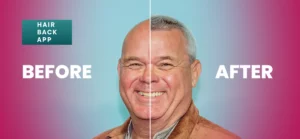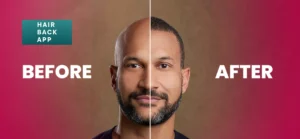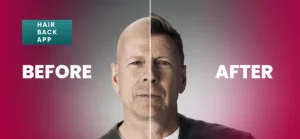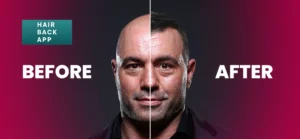Hair loss can be a distressing side effect for individuals managing type 2 diabetes with medications like Ozempic (semaglutide). While Ozempic is highly effective in controlling blood sugar levels, its potential to cause hair loss raises concerns among patients.
My name is Emma Wright, your resident hair loss and restoration specialist. Today, we’ll be discussing how to stop hair loss from Ozempic.
Ozempic is a medication prescribed to manage type 2 diabetes by regulating blood sugar levels. While it’s effective for many individuals, some may experience side effects, including hair loss. If you’re facing this issue, it’s essential to understand why it occurs and how to address it effectively.
Understanding why this side effect occurs and how to manage it is crucial for maintaining both physical and emotional well-being. In this comprehensive guide, we’ll delve into the mechanisms behind hair loss from Ozempic, its duration, and practical steps to address and minimize its impact.
By empowering yourself with knowledge and guidance, you can navigate this aspect of diabetes management with confidence and peace of mind.
What Is Ozempic?
Ozempic is a brand name for the medication semaglutide, which belongs to a class of drugs called glucagon-like peptide-1 (GLP-1) receptor agonists. It is primarily used to treat type 2 diabetes by helping to regulate blood sugar levels.
Semaglutide works by mimicking the action of a hormone called GLP-1, which stimulates insulin production and reduces glucose production in the liver. By doing so, Ozempic helps to lower blood sugar levels and improve glycemic control in people with type 2 diabetes.
It is typically administered through subcutaneous injections and is often prescribed when other diabetes medications have not been effective on their own.
Can Ozempic Cause Hair Loss?
Yes, Ozempic (semaglutide) has been reported to cause hair loss as a potential side effect, although it is relatively rare. While the exact mechanism behind this side effect is not fully understood, it is believed to be related to changes in hormone levels or nutrient absorption caused by the medication.
It’s essential to note that not everyone who takes Ozempic will experience hair loss, and the severity of the side effects can vary from person to person. If you are experiencing hair loss while taking Ozempic, it’s essential to consult with your healthcare provider to determine if it is indeed related to the medication and to discuss potential management strategies.

How To Stop Hair Loss From Ozempic
If you’re experiencing hair loss while taking Ozempic, here are some steps you can take to help minimize or stop it:
- Consult Your Healthcare Provider: The first and most crucial step is to discuss your concerns with your healthcare provider. They can assess whether the hair loss is indeed related to Ozempic and offer guidance on how to manage it.
- Consider Alternative Medications: Depending on your individual circumstances, your healthcare provider may recommend switching to a different medication to manage your type 2 diabetes. There are several alternative medications available, so it’s worth discussing with your doctor to find one that may be less likely to cause hair loss.
- Maintain a Healthy Lifestyle: Ensuring you have a balanced diet, exercise regularly, manage stress effectively, and get enough sleep can all contribute to overall health, which may help reduce hair loss and improve your well-being.
- Use Gentle Hair Care Products: Opt for mild shampoos and conditioners that are suitable for your hair type. Avoid harsh chemicals and excessive heat styling, as these can further damage hair that may already be weakened.
- Consider Supplements: Some people find that taking supplements such as biotin or multivitamins can help support hair health. However, it’s essential to discuss this with your healthcare provider first to ensure they are safe and appropriate for you.
- Be Patient: Hair loss from medications can be distressing, but it’s important to be patient. In many cases, hair loss is temporary and will improve over time, especially once you stop taking the medication or switch to an alternative.
By taking these steps and working closely with your healthcare provider, you can help minimize or stop hair loss associated with Ozempic while effectively managing your type 2 diabetes.
Remember that everyone’s experience is different, so what works for one person may not work for another. It’s essential to find a solution that works best for you with the guidance of your healthcare team.
Is Hair Loss From Ozempic Permanent?
Hair loss from Ozempic is usually temporary rather than permanent. Once the medication is discontinued or your body adjusts to it, hair growth typically resumes. However, it’s important to note that the duration of hair loss can vary from person to person.
Some individuals may notice hair thinning or shedding shortly after starting the medication, while others may not experience it until they have been taking it for several months. In most cases, hair loss improves within a few months after discontinuing Ozempic or adjusting the dosage.
If you’re concerned about hair loss while taking Ozempic, it’s essential to speak with your healthcare provider for personalized advice and guidance.
How Long Does Ozempic Hair Loss Last?
The duration of hair loss from Ozempic can vary from person to person. Some individuals may notice hair thinning or shedding shortly after starting the medication, while others may not experience it until they have been taking it for several months. In most cases, hair loss improves within a few months after discontinuing Ozempic or adjusting the dosage.
However, it’s important to note that the timeline for hair loss resolution is not uniform for everyone. Some individuals may experience a quicker improvement in hair loss once they stop taking Ozempic or switch to an alternative medication, while others may take longer to see improvements.
Additionally, factors such as individual physiology, underlying health conditions, and overall hair health can also influence the duration of hair loss.
If you’re experiencing hair loss while taking Ozempic and are concerned about its duration, it’s essential to discuss your concerns with your healthcare provider. They can provide personalized guidance based on your specific situation and may recommend adjustments to your treatment plan to address the issue effectively.
Conclusion
Experiencing hair loss while taking Ozempic can be concerning, but it’s important to remember that you’re not alone, and there are steps you can take to address it. By consulting with your healthcare provider, exploring alternative medications, maintaining a healthy lifestyle, using gentle hair care products, considering supplements, and being patient, you can effectively manage hair loss while continuing to effectively manage your type 2 diabetes.
Remember that everyone’s experience with hair loss from Ozempic is unique, and what works for one person may not work for another. By working closely with your healthcare team, you can find a solution that suits your individual needs and minimizes the impact of hair loss on your overall well-being.
If you’re experiencing hair loss while taking Ozempic, don’t hesitate to reach out to your healthcare provider for guidance and support. Together, you can navigate this aspect of diabetes management and focus on maintaining your health and quality of life.














